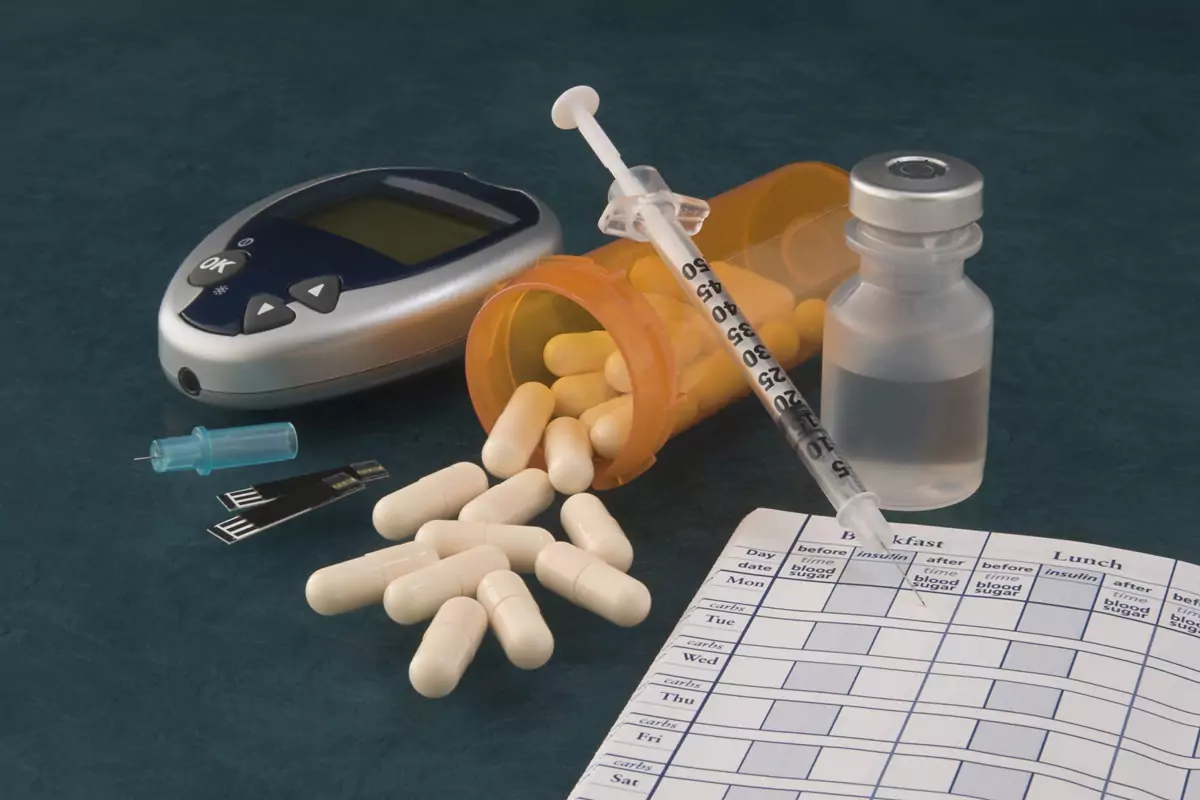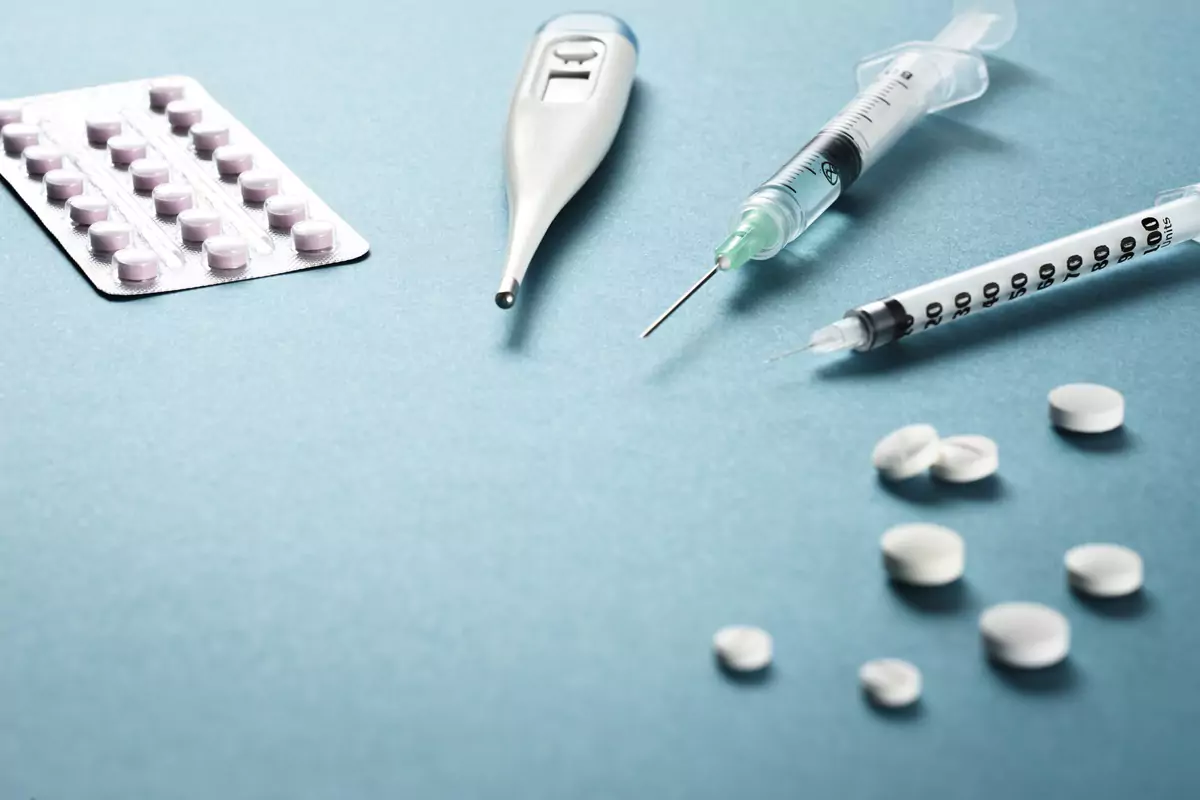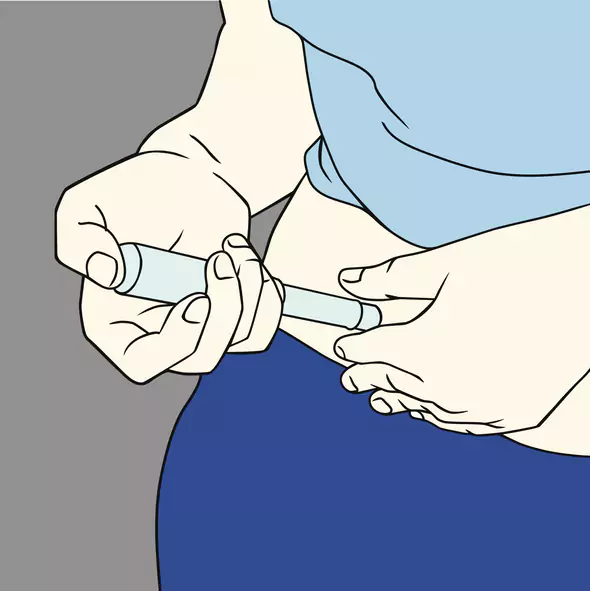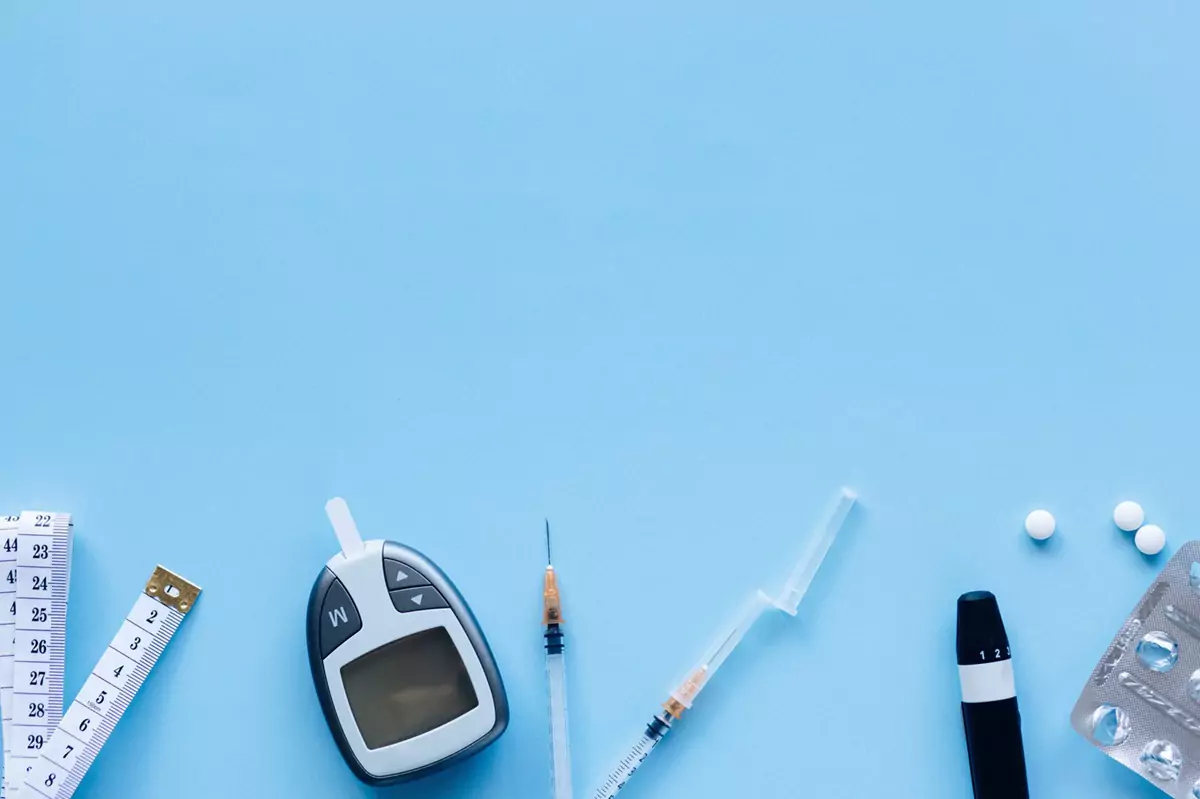
UP TO 40% OFF SITEWIDE






How Long Should I Take Jardiance?


Table of Contents
- What is Jardiance?
- The Importance of Taking Jardiance
- How Long Should You Take Jardiance?
- Factors Influencing the Duration of Jardiance Intake
- Severity of Diabetes
- Overall Health
- Response to Medication
- Regular Monitoring and Adjustment
- What Happens If You Stop Taking Jardiance Prematurely?
- Understanding Side Effects of Jardiance
- Conclusion
- About The Author
Imagine waking up one day and finding out you have a chronic condition like diabetes. It's a life-altering moment that comes with a flurry of questions. One of the most pressing questions is often about medication: "How Long Should I Take Jardiance?" This question is particularly relevant for those prescribed Jardiance, a common medication for managing type 2 diabetes.
Navigating the world of diabetes treatment can feel like walking through a labyrinth. But don't worry, you're not alone. This comprehensive guide is here to illuminate the path and answer your burning question: "How long should I take Jardiance?" In this article, we'll delve into the depths of this crucial query, exploring the factors that determine the duration of Jardiance intake the potential risks of stopping prematurely and the importance of understanding its side effects.
By the end, you'll have a clearer understanding of your journey with Jardiance, empowering you to take control of your health with confidence. But remember, this is just the beginning. There's a world of knowledge waiting for you and this article is your stepping stone. So, are you ready to take the first step? Let's unravel the mystery of Jardiance together.
What is Jardiance?
In the vast landscape of diabetes management, one medication stands out for its effectiveness in controlling high blood sugar levels: Jardiance. Known in the pharmaceutical world by its generic name, Empagliflozin, Jardiance has become a cornerstone in the treatment plans of many individuals living with type 2 diabetes. But what exactly is Jardiance and how does it work to manage blood sugar levels? Let's delve deeper into the science behind this medication.
Jardiance is part of a class of drugs known as sodium-glucose co-transporter 2 (SGLT2) inhibitors. This might sound like a mouthful but the concept behind it is relatively straightforward. To understand how SGLT2 inhibitors work, it's helpful to first understand the role of glucose in our bodies.
Glucose, or sugar, is the primary source of energy for our cells. After we eat, our digestive system breaks down food into glucose which then enters our bloodstream. From there, it's transported to our cells where it's used for energy.
However, for individuals with type 2 diabetes, this process doesn't work as it should. Their bodies either resist the effects of insulin - a hormone that regulates the movement of sugar into cells - or they don't produce enough insulin to maintain normal glucose levels. The result is an excess of glucose in the bloodstream, leading to high blood sugar levels. This is where Jardiance comes into play. As an SGLT2 inhibitor, Jardiance targets a specific protein in the kidneys: the sodium-glucose co-transporter 2. Under normal circumstances, this protein reabsorbs glucose back into the bloodstream as the blood is filtered through the kidneys.
However, Jardiance inhibits this protein, preventing it from reabsorbing glucose. Instead the excess glucose is excreted from the body through urine, effectively lowering blood sugar levels. But Jardiance doesn't stop there. In addition to its blood sugar-lowering effects, it also offers cardiovascular benefits. Clinical trials have shown that Jardiance can reduce the risk of cardiovascular death in adults with type 2 diabetes who also have heart disease.
This dual action makes Jardiance a powerful ally in the fight against diabetes and its potential complications. In essence, Jardiance is more than just a medication. It's a tool that empowers individuals with type 2 diabetes to take control of their blood sugar levels and live healthier lives. By understanding how Jardiance works, we can appreciate its role in diabetes management and make informed decisions about our health.
The Importance of Taking Jardiance
Jardiance is not just about controlling high blood sugar levels; it's about transforming lives by preventing the severe complications that diabetes can bring. When we talk about type 2 diabetes, we're not just talking about a condition that affects blood sugar levels.
We're talking about a disease that, if left unchecked, can lead to a host of debilitating complications. These complications can range from kidney damage which can necessitate dialysis or even a kidney transplant, to blindness, a life-changing condition that can rob individuals of their independence.
Nerve problems, another potential complication of uncontrolled diabetes, can lead to a range of issues from digestive problems to pain and numbness in the extremities. In severe cases these nerve problems can result in the loss of limbs, a devastating consequence that underscores the importance of maintaining control over blood sugar levels. Moreover, diabetes can lead to sexual function problems, an often overlooked but significant issue that can affect a person's relationships and self-esteem.
By helping to regulate blood sugar levels, Jardiance can help prevent these complications, preserving not just physical health but mental and emotional well-being as well. However the effectiveness of Jardiance is not just about taking the right dosage; it's also about the duration of intake.
This medication is not a quick fix but a long-term treatment strategy. It's crucial to understand that stopping or altering the dosage without consulting your healthcare professional can lead to uncontrolled blood sugar levels and an increased risk of complications.
Taking Jardiance as prescribed by your healthcare professional is therefore of paramount importance. It's a commitment, a daily step you take in the journey of managing your diabetes. It's about understanding that this medication is a tool and like any tool, it needs to be used correctly to reap its benefits.
How Long Should You Take Jardiance?
The answer, as with many aspects of personal health, isn't a one-size-fits-all solution. Jardiance is usually taken once daily but the duration of intake can vary significantly from one individual to another. This variability stems from the fact that each person's health condition is unique and so is their response to medication.
It's important to understand that Jardiance is not a magic bullet that cures diabetes. Instead, it's a powerful tool that helps manage and control the condition. Jardiance works by preventing the kidneys from reabsorbing glucose back into the blood thereby promoting its excretion through urine and lowering blood sugar levels.

This mechanism of action helps keep your blood sugar levels in check but it doesn't eliminate the underlying cause of diabetes. Therefore, you may need to take Jardiance for an extended period, often spanning several years or even a lifetime. This long-term usage is not a sign of the medication's inefficacy but a testament to its role in managing a chronic condition like diabetes.
The goal is to maintain a stable and healthy blood sugar level over time and Jardiance can be instrumental in achieving this goal when used as part of a comprehensive diabetes management plan. However the exact duration for taking Jardiance is ultimately determined by your healthcare provider. They will consider various factors, including your current blood sugar levels the severity of your diabetes, your overall health status and your body's response to the medication.
Regular check-ups and blood tests will be part of this ongoing assessment. Your doctor may adjust the duration of your Jardiance intake based on these factors. For instance, if your blood sugar levels remain consistently well-controlled with Jardiance and you're not experiencing significant side effects, your doctor may recommend that you continue taking the medication indefinitely. Conversely, if your blood sugar levels are not adequately controlled, or if you experience severe side effects, your doctor may reassess your treatment plan.
Therefore the duration of taking Jardiance is a personalized aspect of your diabetes management plan, tailored to your specific needs and circumstances. It's a journey that you and your healthcare provider embark on together, with the shared goal of effectively managing your diabetes and enhancing your quality of life.
Factors Influencing the Duration of Jardiance Intake
Several When it comes to determining the duration of Jardiance intake, it's not a one-size-fits-all scenario. Several factors come into play, each contributing to a personalized treatment plan that best suits the individual's health condition. Let's delve deeper into these factors to better understand how they influence the length of time a person needs to take Jardiance.
Severity of Diabetes
The severity of an individual's diabetes is a significant factor. Type 2 diabetes can range from mild to severe and the intensity of the condition often dictates the duration of medication intake. For those with mild diabetes, a shorter course of Jardiance may suffice, especially when combined with lifestyle modifications like diet and exercise. However, for individuals with severe diabetes, long-term or even lifelong use of Jardiance may be necessary to keep blood sugar levels in check and prevent complications.
Overall Health
An individual's overall health also plays a crucial role. People with other health conditions, such as heart disease or kidney problems, may need to take Jardiance for a longer period. This is because Jardiance not only helps control blood sugar levels but also has been shown to reduce the risk of cardiovascular death in adults with heart disease. Therefore, your doctor will consider your overall health status when determining the duration of your Jardiance intake.
Response to Medication
The body's response to Jardiance is another key factor. Everyone's body reacts differently to medication. Some people may find that Jardiance effectively controls their blood sugar levels without causing significant side effects. In such cases the doctor may recommend continuing the medication indefinitely, as the benefits clearly outweigh any minor discomforts.
However, not everyone has the same positive response. Some individuals might experience severe side effects or find that Jardiance isn't effectively controlling their blood sugar levels. In these cases the doctor may need to adjust the treatment plan. This could involve changing the dosage of Jardiance, switching to a different medication, or adding another medication to the treatment regimen.
Regular Monitoring and Adjustment
It's important to note that determining the duration of Jardiance intake isn't a one-time decision. Regular monitoring of blood sugar levels and overall health is essential. Your doctor will likely adjust your treatment plan over time based on these check-ups. Regular appointments with your healthcare provider ensure that your treatment remains effective and that any side effects are managed promptly.
The duration of Jardiance intake is a complex issue influenced by multiple factors. It's a decision made in partnership with your healthcare provider, taking into account the severity of your diabetes, your overall health and your body's response to the medication. Regular monitoring and adjustment ensure that your treatment plan remains effective and tailored to your evolving health needs.
What Happens If You Stop Taking Jardiance Prematurely?
In the journey of managing diabetes, consistency is key, particularly when it comes to medication. One such medication is Jardiance, a widely prescribed drug for controlling high blood sugar levels in individuals with type 2 diabetes. But what happens if you decide to stop taking Jardiance prematurely, without consulting your healthcare provider? The consequences can be more severe than you might anticipate.
Firstly, it's essential to understand that Jardiance, like any other medication, works best when taken consistently and as prescribed by your healthcare provider. This medication functions by inhibiting the reabsorption of glucose by the kidneys thereby promoting its excretion through urine and effectively lowering blood sugar levels. When you abruptly stop taking Jardiance, this process is interrupted, leading to a potential spike in your blood sugar levels.
Uncontrolled blood sugar levels can have a domino effect, triggering a series of health complications. High blood sugar levels over an extended period can damage various organs and tissues in your body, leading to heart disease, kidney damage, nerve damage and even vision problems. Therefore, stopping Jardiance prematurely can indirectly increase your risk of these serious and sometimes life-threatening, diabetes-related complications.
Moreover, it's not uncommon for individuals to consider discontinuing their medication due to side effects. While Jardiance is generally well-tolerated, some people may experience side effects ranging from mild issues like urinary tract infections to more severe ones in rare cases. If you're experiencing side effects that are causing discomfort or concern, it's natural to contemplate stopping the medication.
However, it's crucial to remember that managing these side effects should not involve self-adjusting your medication regimen. Instead, reach out to your healthcare provider. They can provide guidance on managing these side effects which may involve adjusting your dosage or even switching you to a different medication. Your healthcare provider's expertise is invaluable in ensuring that your treatment plan is both effective and tolerable.
Understanding Side Effects of Jardiance
Just as every individual is unique, so too is their response to medication. Jardiance, like any other drug, has the potential to cause side effects. While many people taking Jardiance will not experience severe side effects, it's important to be aware of what these could be. This awareness equips you with the knowledge to identify potential issues early and seek timely medical advice.
Jardiance is generally well-tolerated but it's not uncommon for patients to experience certain side effects. Some of the most common ones include urinary tract infections, yeast infections and increased urination. These are typically mild and manageable but they can cause discomfort and inconvenience. Urinary tract infections can cause symptoms such as a burning sensation during urination, a frequent urge to urinate and lower abdominal pain.
Yeast infections, on the other hand, can cause itching, redness and discharge in women and redness and itching on the penis in men. Increased urination, another common side effect, can disrupt your daily routine and sleep patterns. In rare cases, Jardiance can cause more serious side effects. These may include dehydration, ketoacidosis (a serious condition that can occur if your body produces high levels of blood acids called ketones) and severe urinary tract infections that can lead to hospitalization.
It's important to note that these side effects are uncommon but being aware of them helps you recognize the signs and seek immediate medical attention if necessary. Despite these potential side effects, it's crucial to remember that your doctor has prescribed Jardiance because they believe the benefits outweigh the potential risks. Jardiance has been shown to effectively lower blood sugar levels and reduce the risk of cardiovascular events in people with type 2 diabetes. These significant benefits are why many healthcare providers continue to prescribe Jardiance to their patients.
However, understanding the potential side effects of Jardiance is just as important as understanding its benefits. If you're concerned about side effects, it's always best to discuss this with your healthcare provider. They can provide you with personalized advice based on your health history and current condition. They may also be able to suggest strategies to manage side effects, such as dietary changes to prevent urinary tract infections or adjusting the timing of your medication to minimize disruptions to your daily routine.
For a more comprehensive discussion on the side effects of Jardiance, we recommend reading our detailed article here. This article provides an in-depth look at the potential side effects of Jardiance, helping you understand what to expect and when to seek medical attention.
Conclusion
Understanding how long to take Jardiance is a crucial part of managing your diabetes effectively. Remember the duration of intake can vary based on individual health conditions and your doctor's recommendations. Never alter or stop your medication without consulting your healthcare provider.
Managing diabetes is a long-term commitment and Jardiance can be a valuable part of your treatment plan. However, it's equally important to understand the potential side effects of this medication. For more information on this topic, we encourage you to read our detailed article on the side effects of Jardiance here.
About The Author
Meet Dr. Ahmet Ergin a highly skilled and dedicated endocrinologist with a passion for diabetes care. Dr. Ergin earned his medical degree with honors from Marmara University in Istanbul. He completed internal medicine residency and endocrinology fellowship at Cleveland Clinic.
Dr. Ergin is board-certified in Internal Medicine, Endocrinology, Diabetes and Metabolism due to his vast medical expertise. He's a certified diabetes educator, author of "The Ultimate Diabetes Book," and founder of "the SugarMD YouTube channel."
Dr. Ergin offers exceptional diabetes care to his patients in Port Saint Lucie, FL, helping them manage effectively. Disclaimer: These statements have not been evaluated by the Food and Drug Administration. Information on this website isn’t intended to treat, cure or prevent any disease. Discuss with your doctor and do not self-treat.
Written By Dr. Ahmet Ergin
466 total articles
Meet Dr. Ahmet Ergin, a highly skilled and dedicated endocrinologist with a passion for diabetes care. Dr. Ergin earned his medical degree with honors from Marmara University in Istanbul. He completed internal medicine residency and endocrinology fellowship at Cleveland Clinic. Dr. Ergin is board-certified in Internal Medicine, Endocrinology, Diabetes, and Metabolism due to his vast medical expertise. He's a certified diabetes educator, author of “The Ultimate Diabetes Book,” and founder of “the SugarMD YouTube channel.” Dr. Ergin offers exceptional diabetes care to his patients in Port Saint Lucie, FL, helping them manage effectively. For a closer look into his insights and experiences, connect with Dr. Ahmet Ergin on LinkedIn, Instagram, and YouTube.”
Disclaimer: These statements have not been evaluated by the Food and Drug Administration. Information on this website isn't intended to treat, cure or prevent any disease. Discuss with your doctor and do not self-treat.
Products















